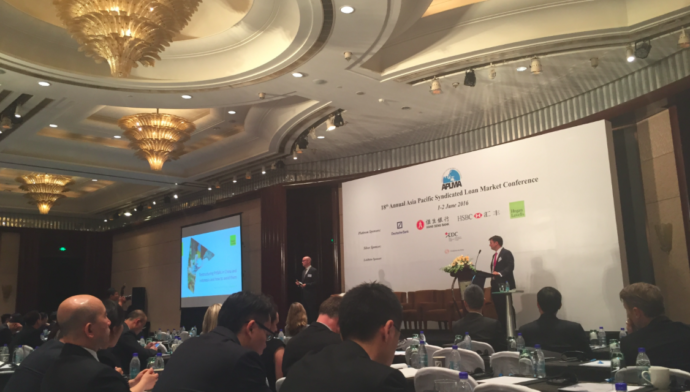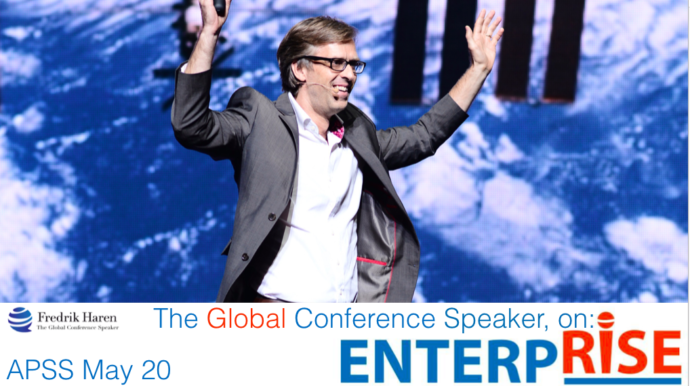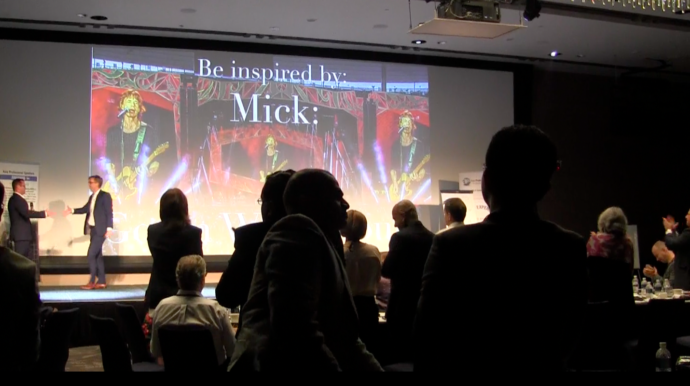
(Shanghai, China)
On the briefing call with the client one week ago I asked: “Why did you decide to bring me in as a speaker at your conference?”
The reply I got was: “After a full day of seminars we need to break it up with something different.”
When I asked “What do you want me to speak on?”
They replied: “We leave that up to you – we just need someone to be break between a day full of seminars.”
So there you have it: Sometimes the job of a professional speaker is more similar to that of a half-time entertainment performer than an educator.
We are there to lighten up the mood, give some distraction from the main event and give the audience a break from what they are really there for.
Might be tough to hear for some.
Personally I have no problem being the half-time show once in a while.
But in instances like this it’s important to know how to plan your “performance” so that it fits with the day – even when there seems to be no fit what so ever, or even when you have been selected on the basis that there IS no connection to the rest of the conference …
The conference this time was the Annual Asia Pacific Syndicated Loan Market Conference.
400 bankers and lawyers met at the Marriott hotel in downtown Shanghai to learn about the latest trends in international syndicated loans.
When I read the conference program to see what the other speakers would be speaking on I found things like: ““Recent trends in the APAC and Global loan markets”, “Australian Loan Market – Infrastructure”, and “Leveraged and acquisitions finance market” and so on.
My topic is “creativity”…
Not very obvious that there would be a natural fit between the theme of that conference and the topics I speak on.
So what to do?
I decided to fly in one day earlier to listen to the other speakers speaking on the first day to try to find a connection.
I still did the talk I had planned to do.
But I also connected my message to the message that others had been speaking on.
Creativity is the ability to find patterns where others do not find any. And by listening to the other speakers the day before I could find patterns that I could then connect with what I had planned to talk about.
When one speaker had spoken about the uncertainty in the Chinese economy – I could connect that to the need to be good at seeing and understanding change.
When one speaker talked about the trends for loans to coal mines in Indonesia – I could connect that to how giving a loan is actually one of the most creative industries there is: Since a person giving a loan is basically buying into someone else’s idea of what the future will be like.
When the Emcee talked about the party they had had with people from different countries – I could connect that to how the most important purpose of a conference like this was to pick up ideas from other people from other countries – since the syndicated loan market is very global and people working in it have to have a understanding of what happens globally.
And so on.
Small changes in my speech that made a huge difference in connecting the speech to the audience.
So I ended up giving a speech that was totally out of sync with all the other speakers (as they had asked me to do) – and at the same time was connected to all the other speakers (and the theme of the conference).
Both different and relevant.
That is the sweet spot that you should aim for when you are there to be the kind of speaker who is a break from all the other speakers.

